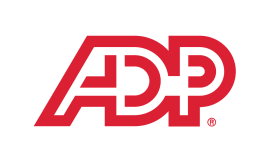
Quantum computing companies brought in new funding this month via two very different sources: a small business innovation grant and a special purpose acquisition company. The European Commission also recently announced details about a plan to build a semiconductor ecosystem, including funds for quantum chips.
Here’s a look at the details of these new investments as well as information about an upcoming webinar and new video series focused on quantum computing.
Q-CTRL wins SBIR grant for automation work
Q-CTRL announced new funding from the U.S. Department of Energy to automate quantum computing processes via machine learning. The company announced the $230,000 Phase-1 Small Business Innovation Research grant Feb. 8. This was one of 158 competitive awards that add up to $35 million for clean energy development. Q-CTRL will use the money to build artificial intelligence algorithms to automate quantum computer hardware. Several companies, including Hyundai Motors and IonQ, are using quantum technology to improve battery design and materials science.
SEE: Q-CTRL launches quantum computing course for people who didn’t study physics (Tech Republic)
Q-CTRL aims to use machine learning to eliminate the need for the precise manual intervention currently required to run quantum computers. The company will work with Sandia National Laboratories on the project.
“Automating essential processes for operating quantum computers will be critical to the technology’s success, and we look forward to working with Sandia National Laboratories to make this vision a reality,” Q-CTRL Founder and CEO Professor Michael J. Biercuk, said in a press release.
The company, based in Australia, also will use the funding to expand operations in the U.S., including growing its existing location in Los Angeles. The project builds on several recent technical demonstrations from the Q-CTRL team, including the first use of deep learning to automate the design of quantum logic gates.
Q-CTRL uses control engineering to make quantum hardware useful in real-world settings, such as in data centers, aircraft and outer space.
Recently, the company announced a $25 million Series B funding round led by Airbus Ventures. SquarePeg Capital, Sierra Ventures, Sequoia Capital China, Data Collective, Horizons Ventures, Main Sequence Ventures, In-Q-Tel, Airbus Ventures and Ridgeline Partners have also invested in the company.
D-Wave goes public via a SPAC
D-Wave announced their plans to bring commercial quantum computing to the stock market via a transaction with the special purpose acquisition company DPCM Capital. D-Wave Quantum Inc. is the new parent company of D-Wave and DPCM Capital and will trade on the NYSE under the symbol “QBTS.”
The company will use proceeds from the transaction to support in-production quantum applications and R&D projects that include the next generations of annealing quantum computers, advancements in the company’s gate-model program and support for Leap, the company’s quantum cloud service.
D-Wave started its quantum work in 2011 with quantum annealing computers, designed to solve optimization problems. The company now also uses gate-model quantum computers to solve differential equations in quantum chemistry. Both systems can solve linear algebraic and factoring problems in machine learning and cryptography, according to the company.
D-Wave CEO Alan Baratz said in a press release that this event represents a moment of practical value creation for customers and for investors.
“We expect this ‘value creation and validation’ to accelerate as an increasing number of diverse use cases emerge — creating a robust cycle of product delivery, application development, and market growth,” Baratz said.
D-Wave’s customers include 25 of the Forbes Global 2000, and work in logistics, materials sciences, drug discovery and financial modeling. PSP Investments, Goldman Sachs Asset Management, NEC Corporation, Yorkville Advisors and Aegis Group Partners also have invested in the company.
Funding from the European Chips Act
Last fall, Commission President Ursula von der Leyen announced an EU Chips Act in her State of the Union speech, and the commission released more details about the act Feb. 8.
The act links Europe’s research capacities and coordinates E.U. and national investments and establishes a chips strategy for the Digital Decade that includes support for developing technologies.
Mark Mattingley-Scott, managing director of EMEA for Quantum Brilliance, said the act also allocates money for quantum technologies via a 1 billion euro fund to support research into quantum chips.
“The Act will accelerate the momentum for the quantum technology industry in Europe, including the development of silicon and diamond-based quantum technologies, which include quantum processors that work at room temperature in small form factors that will see a variety of applications,” he said.
The act aims to build a chips ecosystem to include funding for a dedicated semiconductor equity blending facility as well as grants and equity to support high-risk, innovative SMBs, including start-ups in the semiconductor and quantum technologies sector.
Quantum webinar and video series
If you’re looking to learn more about quantum computing, there are two opportunities to do just that. Classiq is hosting a webinar with Deloitte about how to execute a proof of concept project. The event is March 2 at 11 a.m. EST.
The panel will discuss how to select the right challenge, build out the potential use case framework, select the right partners and set appropriate benchmarks.
Quantum World Detangled just launched a new video series about the industry featuring a monthly conversation with analysts. In the inaugural episode, the conversation covers these topics:
- Company claims: Can D-Wave Systems manage the Port of Los Angeles bottlenecks?
- Mergers and consolidations: Will full-stack companies win the day?
- Standing out in the quantum crowd: How do you differentiate yourself in the market?
- Matchmaker, matchmaker: How do you find the right quantum business partner?
- A seat at the table: How to navigate an unknown future in the quantum world
The panel includes:
- Moderator André M. König, founder and chairman of OneQuantum
- Doug Finke, founder of the Quantum Computing Report
- Shahin Khan, founding partner and analyst with OrionX.net
- James Sanders, research analyst with 451 Research part of S&P Global Market Intelligence
- David Shaw, director of Fact Based Insight
Source of Article



